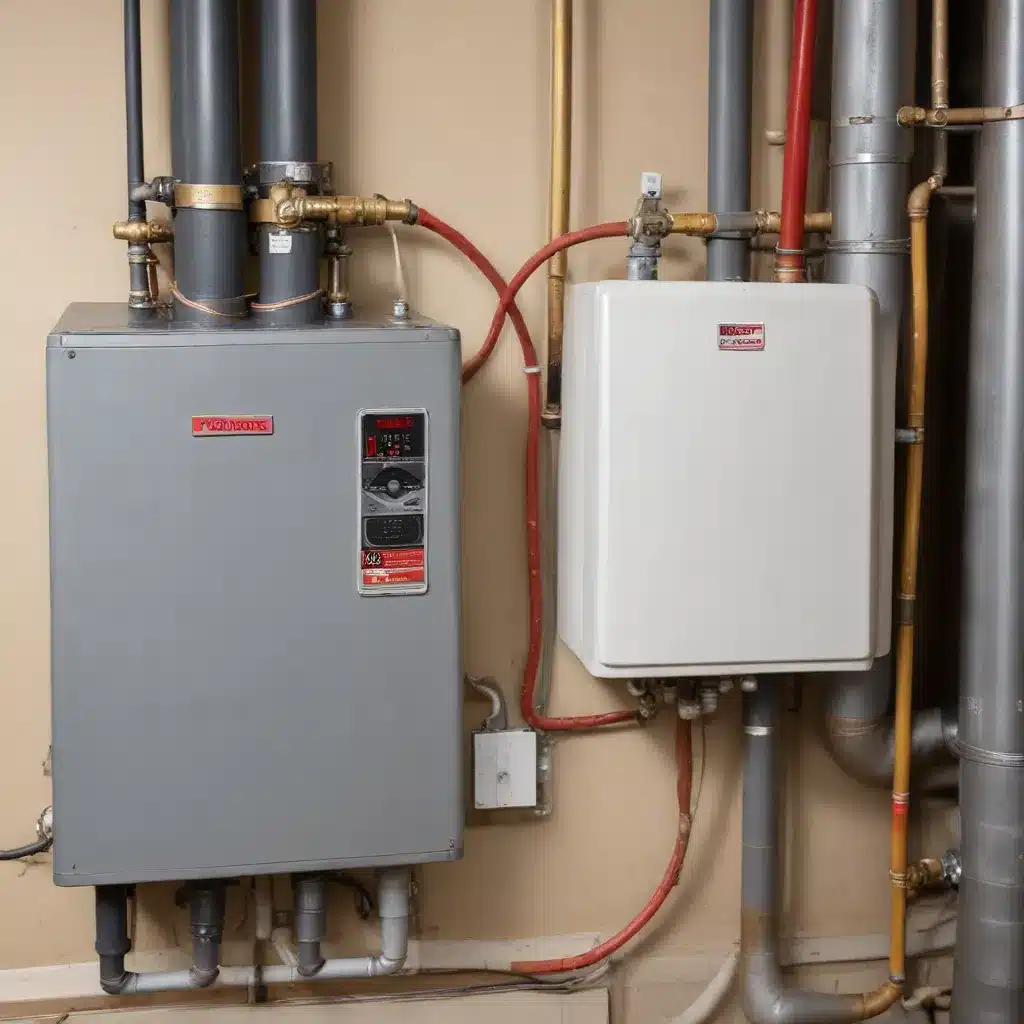
Understanding Short Circuits in Heating Systems
When it comes to maintaining a comfortable and efficient heating system in your home, one of the most common and potentially dangerous issues you may encounter is short-circuiting. A short circuit occurs when there is a low-resistance pathway for electrical current, causing an excessive flow of electricity that can lead to sparks, fires, and system failures.
In the context of heating systems, short-circuiting can manifest in various ways, disrupting the normal operation of your furnace, boiler, or other heating equipment. It’s crucial to address these problems promptly to ensure the safety and longevity of your home’s heating system.
Causes of Heating System Short-Circuiting
There are several potential causes of short-circuiting in heating systems, and understanding them can help you identify and resolve the issue effectively.
1. Wiring and Insulation Issues
Over time, the wiring and insulation in your heating system can become worn, damaged, or deteriorated, leading to short-circuit problems. This can happen due to age, physical damage, or exposure to environmental factors like moisture or pests. When the insulation breaks down, it allows the wires to come into contact, creating a low-resistance path for electricity to flow.
2. Loose or Faulty Connections
Loose or faulty connections in the electrical components of your heating system can also contribute to short-circuiting. This can occur at terminal blocks, wire splices, or even within the heating appliance itself, where components like thermostats, sensors, or control boards are connected.
3. Overloaded Circuits
If your heating system is connected to an overloaded electrical circuit, it can lead to short-circuiting. This happens when the total power draw of the heating system, along with other appliances or devices on the same circuit, exceeds the circuit’s capacity. This can cause the circuit breaker to trip or the wiring to overheat, potentially leading to a short circuit.
4. Water Intrusion
Exposure to water or moisture can be a significant contributor to short-circuiting in heating systems. If water seeps into electrical components, connections, or wiring, it can create a low-resistance path for electricity, causing a short circuit. This is particularly problematic in systems that use water, such as boilers or hydronic heating, where leaks or condensation can lead to these issues.
5. Rodent or Pest Damage
Pests, such as rodents or insects, can also be the culprit behind short-circuiting in heating systems. These intruders may chew through wiring insulation or create nests that cause wires to come into contact, leading to short circuits.
Identifying and Addressing Short-Circuiting Problems
Recognizing the signs of a short-circuiting issue in your heating system is the first step in resolving the problem. Some common indicators include:
- Frequent tripping of circuit breakers
- Flickering or dimming lights when the heating system is running
- Unusual burning smells or visible smoke from the heating equipment
- Sudden and unexplained heating system shutdowns or failures
If you notice any of these signs, it’s essential to take immediate action to prevent further damage and ensure the safety of your home.
Resolving Short-Circuiting Issues
Addressing short-circuiting problems in your heating system typically involves a multi-step approach:
-
Disconnect and Inspect: Safely disconnect the power to your heating system and thoroughly inspect the wiring, connections, and electrical components for any signs of damage or deterioration.
-
Identify the Root Cause: Determine the underlying cause of the short-circuiting, whether it’s wiring issues, loose connections, overloaded circuits, water intrusion, or pest damage.
-
Perform Necessary Repairs: Based on the identified cause, make the necessary repairs, such as replacing damaged wiring, tightening connections, upgrading the electrical circuit, or addressing any water or pest problems.
-
Test and Verify: After completing the repairs, test the heating system thoroughly to ensure the short-circuiting issue has been resolved and the system is functioning safely and efficiently.
It’s important to note that addressing electrical issues in heating systems can be complex and potentially dangerous, especially for homeowners who lack the necessary expertise. In such cases, it’s highly recommended to enlist the services of a licensed and experienced plumber and heating specialist who can properly diagnose and resolve the short-circuiting problem.
Preventing Future Short-Circuiting Problems
To minimize the risk of short-circuiting in your heating system, consider the following preventive measures:
-
Regular Maintenance: Scheduling routine maintenance checks and inspections of your heating system can help identify and address potential issues before they escalate into short-circuiting problems.
-
Electrical System Upgrades: If your home’s electrical infrastructure is outdated or insufficient to handle the power demands of your heating system, consider upgrading the electrical panel, wiring, and circuits to ensure proper load capacity and safety.
-
Pest Control: Implement effective pest control measures to keep rodents, insects, and other intruders away from your heating system’s wiring and electrical components.
-
Insulation and Sealing: Properly insulate and seal your heating system’s components, including ductwork, piping, and electrical boxes, to prevent water intrusion and maintain the integrity of the wiring and insulation.
-
Professional Assistance: When in doubt or facing complex heating system issues, don’t hesitate to contact a reputable plumbing and heating specialist who can provide expert guidance and solutions to address short-circuiting problems and ensure the long-term reliability and safety of your home’s heating system.
By understanding the causes of short-circuiting in heating systems, promptly addressing any issues that arise, and implementing preventive measures, you can maintain a comfortable, efficient, and safe heating environment in your home.


